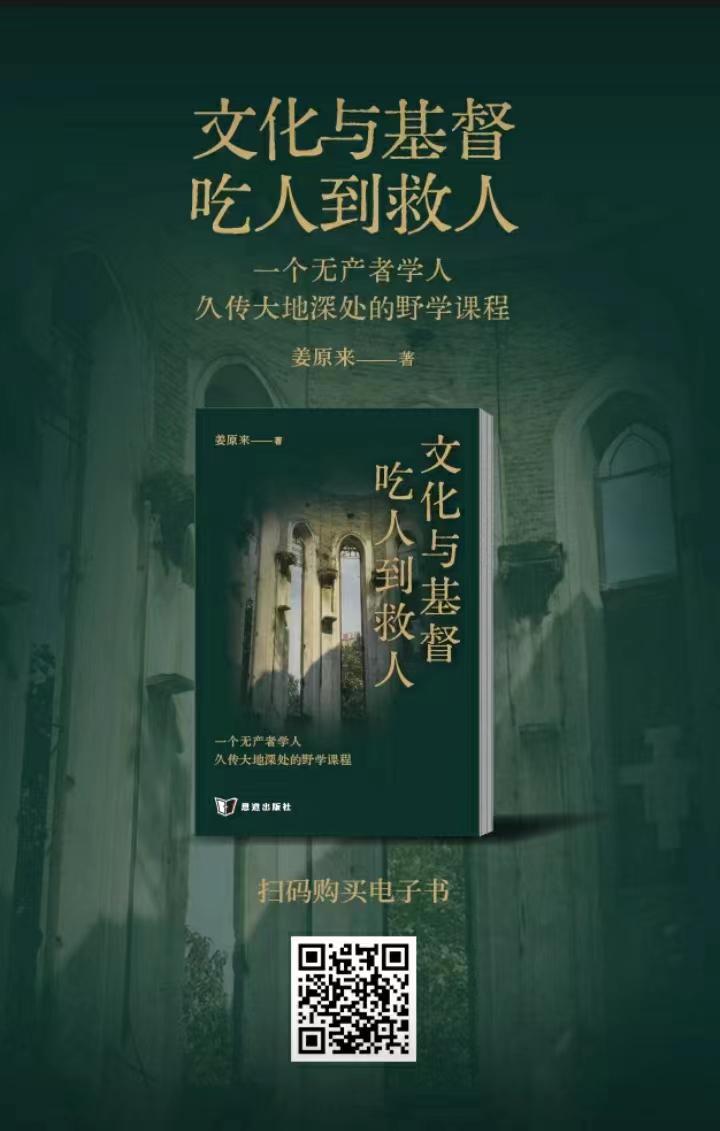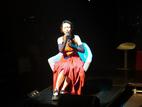A new book titled Culture and Christ: From Swallowing to Saving Men was recently released in Hong Kong.
Authored by Christian playwright Jiang Yuanlai, the book is dedicated to “opening up an in-depth dialogue between Chinese and other cultures” and “offering a broad public perspective to systematically understand Christian culture and its relationship with the various others,” according to the introduction posted on the official website of the publisher, “Inspirata eBooks.”
Consisting of eight chapters, the book talks about the relationship between culture and Christ. The first half of the book focuses on a general survey of culture and Christ, expounding on the relationship between Christ and global culture, challenges faced by Christianity, and 13 fieldwork perspectives around “revelation and culture.” The second delves into 23 basic relationships between Christ and global culture, including “church culture becoming public classic culture,” “being light in the darkness,” and “salt melting into water.”
It also "puts forward a series of critical issues to the public ideological and cultural circles, such as 'liberal education', 'the conception of no more men-swallowing'."
Jiang Yuanlai, a native of Shanghai, went to the remote villages of Heilongjiang to "settle in the countryside" for more than three years. After graduating from university, Jiang has been engaged in the environmental planning of nature reserves and field environmental research in government and research institutes for a long time. He became a Christian in the 1980s and entered the field of Christian culture in the early 1990s. Jiang began his drama writing at the end of the 1990s and was recognized as one of the most important folk playwrights on the Chinese mainland by critics.
Below is the English translation of the book introduction by Ding Jun, an associate English professor at Fudan University:
This is a book from the depths of the Chinese land, filled with smells of weeds and sweat, smoke from battle fields, and anecdotes of those who strive for survival.
This is also a book boasting the most unexpected "foreignness.” Lu Xun’s calling of “seeking new voices in foreign nations” has become a lively fact here, where legendary cultural events of the spreading, interpretation, and grafting of Western classics among the marginalized Eastern believers are narrated in detail.
As a book of Christianity, it incorporates many little-known and valuable experiences of communication among fellow workers from various denominations in China. Widely used in missionary works and various services by churches in mainland China, it has already largely benefited the spiritual growth of Christians, the overall improvement of humanistic awareness among pastors and believers alike, and the enrichment of daily Christian cultural life.
Culture and Christ is written for everyone as it confronts the reality of a multicultural world and opens up an in-depth dialogue between Chinese and other cultures, offering a broad public perspective to systematically understand Christian culture and its relationship with the various others. It adopts the standpoint of what the author proposed as “ink-faced Christ” and puts forward a series of critical issues to the public ideological and cultural circles, such as “liberal education”, “the conception of no more men-swallowing,” etc.
In a time when there is no shortage of specialized cultural studies, this book presents itself as a work of macro-cultural research. Trapped in the maze of information explosion and post-truth, every Christian as well as every earthling feels the need to break through a cultural confusion best illustrated as “seeing only trees but not the forest.” While this book maps out exactly a Christian world culture after decades of in situ research and group practice re-research, it is a map that aims to help everyone struggling in the vast sea of secular culture get onboard—to go home.
Finally, it is a book of rich fieldwork, a contemporary presentation of the ancient Chinese tradition of “seeking the origin of courtesy in the wild.” Moreover, it is neither a lone ranger’s cry of desperation nor an out-of-office discussion of some self-exiled hermit. Rather, it is a live documentation of the cultural colossus of the unity of knowledge and action among the vast religious community in the wilderness of the “world’s largest land in secrecy.”











